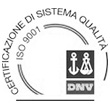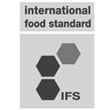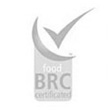Fennel
(Foeniculum vulgare)
Fennel – Ingl., Fenchel – Ted., Fenouil – Fr, Hinojo – Sp., Фенхель - Russ.
Fennel belongs to the Umbelliferae family, such as coriander and cumin, and is native to the Mediterranean area. The main producing countries are India, China, Indonesia, Egypt and Pakistan. Its most used parts are the leaves of the basal stem, fleshy and full of water, which are improperly called “bulbs” and are eaten as a vegetable. Its fruits,called seeds, are widely used as a spice in many recipies.
Fennel and fennel seed, whole or ground, origin Egypt/India.
Food Composition
Key Components
Fennel fruits contain proteins, carbohydrates, vitamins, minerals, calcium and potassium.
Its essential oil is rich in anethole, fencone, pinene, camphene, anisic acid and other compounds.
Culinary Use
Culinary Use
Fennel seeds are used in food industry for the production of various liqueurs and spirits, in confectionery and sugar confectionery.
They are suitable for dishes based on meat (duck, lamb, pork), fish stew, bread and buns.
Healing Effect
Fennel seeds have digestive, antispasmodic and antiseptic properties.
An infusion of fennel seeds is very effective to treat conjunctivitis and inflammation of the eyelids, both oral and topical use.
It improves menstrual flow and stimulates lactation.
It soothes away spasms of colic, nausea, stomachache.
Preservation
Fennel seeds are used in food industry for the production of various liqueurs and spirits, in confectionery and sugar confectionery.
They are suitable for dishes based on meat (duck, lamb, pork), fish stew, bread and buns.





